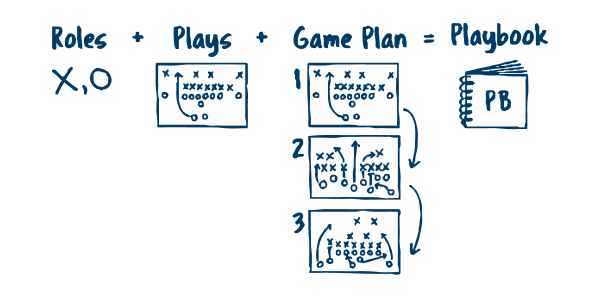How to use the playbook
The digital service design playbook is a collection of design activities and workshops that you can use to design and deliver products and services. It is a ready-to-use resource that will enable you and your team to deliver the best outcomes for Queenslanders, while supporting digital service design capability uplift across the Department of Transport and Main Roads (TMR), and the Queensland Government.
What this playbook is not
This playbook is not a comprehensive introduction to human-centred design (HCD) or why you should use an agile service design and delivery approach to achieve your desired outcomes. This playbook is not a textbook for designers – it has been crafted carefully and specifically with and for TMR and Queensland Government employees to support digital service design capability uplift. As organisational design maturity grows, we will expand the playbook for a wider range of practitioners.
The playbook is not stagnant, and it should transform over time. It is not meant to work as a tool for box-ticking, rather, it will become a resource embedded within teams that can be referred to on an ongoing basis.
Need help?
If you need help convincing your team to use the service design and delivery approach, please contact us.
Who is the playbook for?
TMR created this playbook for all Queensland public servants who are working on complex challenges. You’re probably familiar with other approaches, and you may already have used some methods included in this playbook. You know that you need to find fresh insights, and more effective solutions, and create new collaborative approaches to drive real change.
You don't need a design degree or years of design experience to use the plays in this playbook. A basic understanding of the design process is helpful but not necessary. All you need is an open mind and willingness to learn and iterate on solutions.
How do I use it?
The digital service design playbook is made up of the following components:
- Play: An activity or workshop for doing design work.
- Game plan: A group of plays, combined to complete a project or a stage of a project.
- Role: A set of tasks given to a team member to carry out during a play.

Image from The power of the playbook by Aric Wood. 27 June 2019. The Training Industry
What does 'playbook' mean?
In team sports a play is a strategy for scoring points, and each person on the team has a role to perform during the play.
Before each game, teams select a set of plays and organise them into a game plan to help the players to work together effectively.
All this information is collected in a playbook to reference for future games.
Plays
Plays are activities and workshops that teams can use to design products or services.
Plays will help you to empathise with your users, understand the root cause of a problem, and harness the best ideas from your team. You can use them to coordinate data, technology, and diverse groups of people to achieve your design goals.
The plays are organised into the four stages of the service design and delivery process: discovery, alpha, beta, and live. Each stage has its own goals, and the plays within each stage will help you achieve those goals.
Plays are modular – you can pick and run individual plays that are relevant to your current problem, or you can combine a set of plays into a ‘game plan’ that covers a whole project.
Game plans
A game plan is a set of plays. The plays in a game plan are chosen strategically to solve problems and achieve desirable design outcomes.
Game plans give your team actionable steps to work through a project and help to keep your team organised and aligned.
Your game plan can cover your entire project from start to finish, a single stage of your project, or just a short section of it. For example, in the discovery phase, you might run a game plan to ‘kick off’ your project, then run a separate game plan to carry out some research.
This playbook has sample game plans to get you started, and instructions for writing your own game plans.
Roles
Each play requires a set of tasks to be done. Assigning roles to your participants ahead of time will help your plays run smoothly and ensure that everyone knows which tasks they’re responsible for. You can learn more about these roles in the creating a multidisciplinary team play.
Different plays will require different roles, but we recommend allocating a facilitator for every workshop to keep the group on track. In the instructions of each play, you’ll find information to help the facilitator guide the group.
Next steps
If you’re ready to start looking at plays, head back to the playbook index page to browse through them.
If you’d like to learn how to create a game plan, start by reading making game plans.